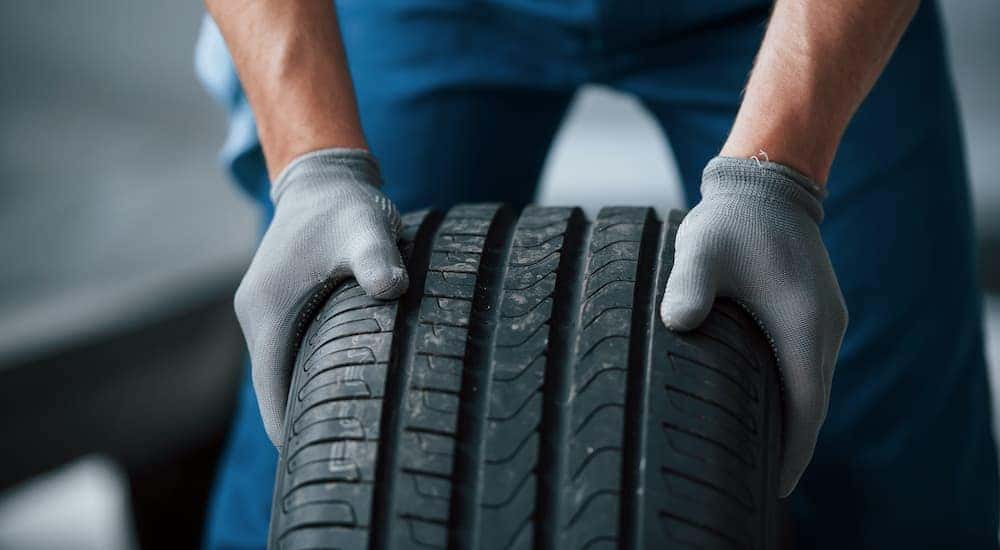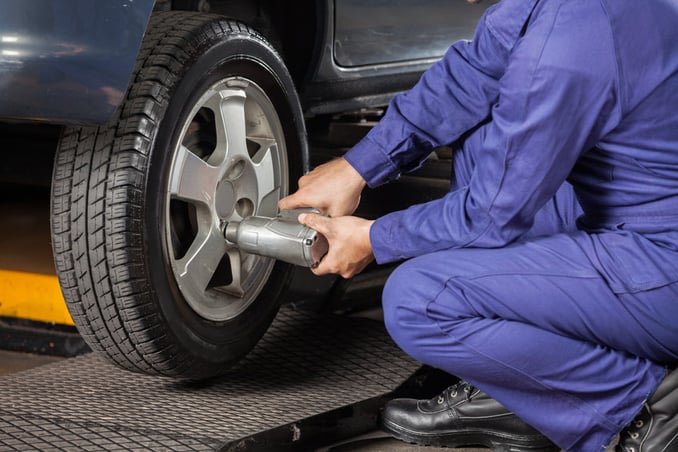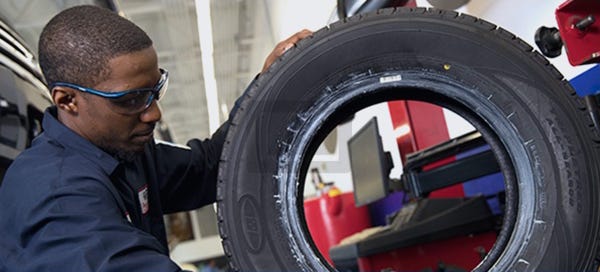Morris Tires: Your Destination for GMC Tires Service Quality
Morris Tires: Your Destination for GMC Tires Service Quality
Blog Article
Tire Solution: The Impact of Climate Conditions
When it comes to making certain ideal efficiency and safety and security on the roadway, understanding the effect of climate conditions on tire service is essential. GMC Tire Service. In this discussion, we will check out the intricate partnership in between climate problems and tire service, dropping light on the significance of weather-specific tire upkeep practices and considerations.
Heat and Tire Efficiency
When exposed to heats, tires experience changes in performance that can dramatically affect lorry safety and handling. The heat created from prolonged driving or heat problems causes the tire rubber to soften, bring about minimized walk life and boosted wear. As the rubber becomes softer, the tire's hold when driving reduces, affecting stopping ranges and total traction. In extreme instances, extreme warmth can also create tire blowouts, presenting a severe safety and security threat to the vehicle and its occupants.

Cold Weather Results
Winter conditions can have a substantial effect on tire efficiency and safety. As temperature levels decline, tire rubber can harden, bring about decreased traction on icy or snow-covered roadways. In winter, tires may also lose atmospheric pressure much more rapidly, which can influence managing and fuel efficiency. In addition, cool temperature levels can cause tire sidewalls to stiffen, raising the risk of damages from craters or various other road dangers.
To minimize the effects of winter on tires, it is critical to on a regular basis inspect tire stress and inflate them to the maker's suggested degrees. Utilizing winter months or all-season tires designed for chilly weather condition problems can also enhance grip and hold on icy or snowy roads. Appropriate tire maintenance, including routine evaluations for wear and damage, becomes even much more crucial throughout chillier months to make sure ideal performance and security.
Rainy Conditions Impact
Throughout rainy conditions, tire performance and safety can be dramatically affected by the damp roadway surfaces and reduced visibility. The step pattern of tires plays a vital function in preserving traction on wet roads. Tires with worn-out footsteps are more susceptible to hydroplaning, where a layer of water accumulates between the tire here and the roadway surface area, causing loss of traction. To battle this, vehicle drivers must regularly examine their tires for ample step depth and think about purchasing tires especially created for damp problems.
In addition, wet weather site can additionally lower presence, making it testing for chauffeurs to see the road ahead plainly (GMC Tire Service). In such conditions, it is vital to readjust driving rates as necessary and maintain a secure adhering to distance to enable sudden quits. Properly filled with air tires can additionally aid in preserving control on damp roads by providing better handling and grip
Snow and Tire Safety
When driving in snowy problems, having the appropriate tires can make a significant distinction in safety and efficiency. Winter months tires are developed with special rubber compounds and walk patterns to give much better traction on snow and ice contrasted to all-season tires.

Additionally, vehicle drivers should take into consideration installing tire chains in severe snowy conditions. Tire chains give additional grip by clutching the snow and ice, enhancing security and control. It is vital to follow maker guidelines when utilizing and installing tire chains to protect against damage to the tires and vehicle (GMC Tire Service). By choosing the ideal tires, keeping appropriate rising cost of living, and thinking about additional grip aids like tire chains, chauffeurs can improve their safety when navigating snow-covered roadways.
Weather-Related Tire Upkeep
When faced with different weather condition problems, appropriate tire upkeep becomes a crucial aspect of automobile safety and efficiency. Weather-related tire maintenance encompasses a variety of methods targeted at making certain optimum tire function and durability in different climate situations. One vital element of web link weather-related tire maintenance is tire pressure regulation. Changing temperatures can cause tire pressure to differ, affecting traction and gas effectiveness. Consistently adjusting and checking tire stress according to manufacturer recommendations is important for safe driving in changing climate condition. In addition, tire tread deepness plays a substantial role in handling various weather condition components. Tires with ample tread depth offer better grip on damp or icy roadways, minimizing the danger of hydroplaning or skidding. Inspecting tire walk frequently and replacing tires when step wear reaches a specific depth is important for preserving grip and stability in adverse climate. By focusing on weather-related tire maintenance, vehicle drivers can boost security, enhance automobile efficiency, and extend the life-span of their tires.
Conclusion
In final thought, climate problems have a substantial effect on tire performance and safety and security. From warmth influencing tire stress and wear to cold climate decreasing traction, it is crucial to take into consideration the weather condition when keeping and using tires.
In this conversation, we will check out the elaborate partnership between weather problems and tire solution, dropping light on the importance of weather-specific tire maintenance practices and considerations.

Report this page